Returns
Clause 1: Eligibility for Refunds and Returns
1.1. Customised or adjusted pet doors are ineligible for refunds or exchanges. Only standard products can be refunded or replaced. This does not affect your statutory rights.
1.2 This returns policy is only valid when purchasing directly through Animalistic Pet Products Pty. Ltd T/A La Luna Pet Care and not through any other reseller. When purchasing through a third party reseller you must return the product directly to them in line with their terms and conditions.
1.3 We reserve the right to refuse any return, refund or postage costs.
Clause 2: Return Conditions
2.1. Returned products must be in new condition as they were when dispatched from Animalistic Pet Products Pty Ltd T/A La Luna Pet Care, with all contents and original packaging. Products not returned in their original condition may either be denied a refund or charged for.
2.2. A notification of intent to return the product must be made to La Luna Pet Care within 14 days of receipt of the product, weekends inclusive.
2.3. In the event of defective products, repairs, replacements or refunds will be issued at our discretion upon receipt of photographic evidence of the damage.
2.4. Products missing from an order or damaged in transit will be replaced or refunded at our discretion, provided we are notified via email or phone of the damage within 24 hours of receipt of the order, accompanied by photographic evidence.
2.5 The return must be scanned in transit within 19 days from the date of delivery including weekends or the return will be closed automatically.
2.6 We are unable to accept returns in person.
Clause 3: Postage Fees and Refund Conditions
3.1. Postage fees for damaged products may or may not be refunded at our discretion. This does not affect your statutory rights
3.2. Vouchers are non-refundable.
3.3. Return shipping costs are the responsibility of the customer and will be deducted from any refund, unless the product purchased has the “free returns” badge.
3.4. Missing contents from a returned order will be charged for or may result in a declined refund.
3.5. Original postage, Zip pay fees, and Afterpay fees are non-refundable.
3.6. Refunds may in some circumstances take up to 30 days to finalise and process.
3.7. Items with free postage will have the actual postage cost deducted from any refund or credit.
3.8 If Animalistic Pet Products Pty. Ltd. organises a collection of freight, this will be within business hours only.
Clause 4: Return Shipping Liability
4.1. Animalistic Pet Products Pty. Ltd. does not accept responsibility for any loss or damage that occurs to parcels in transit on their way back to us, regardless of whether the courier is organised by Animalistic Pet Products Pty. Ltd.
4.2. We advise against leaving a parcel in an unsecured location for the courier to collect, as we will not cover any losses that occur from this action.
4.3. For any delivery rejected by a customer and marked as a return to sender, all shipping costs and a $30.00 administrative fee will be deducted from the refund.
Clause 5: Restocking Fee
5.1. Certain products may be shipped from other warehouses or have stock transferred. These items may incur a restocking fee to cover shipping and restocking costs.
Shipping
Clause 1: General Shipping
1.1. We endeavor to ship all orders within 1-3 business days after receiving the order, unless otherwise stated on the product page, however, this may vary in busy periods.
1.2. Delivery times vary depending on the destination and the chosen delivery method. Quoted ETA’s are an indication only and not guaranteed.
1.3. Once your order has been shipped, you will receive a confirmation email with your tracking number.
1.4 Actual carriers may vary from the ones stated at checkout.
Clause 2: Shipping Costs
2.1. Shipping costs are calculated based on the weight and dimensions of your order, as well as the destination.
2.2. We offer free shipping on certain items as specified on the product page.
2.3. The shipping cost is shown at the checkout page before you make your purchase.
2.4 Express shipping is from the point of dispatch only and does not speed up the dispatch process.
Clause 3: International Shipping
3.1. We ship to select international destinations. However, please be aware that customs duties, taxes, and fees are not included in our pricing and may be charged by your local customs office. These fees are the responsibility of the customer.
Clause 4: Delivery Issues
4.1. If a package is lost or damaged in transit, we will investigate with the courier and replace or refund the order.
4.2. If you are not available to receive the delivery, it is your responsibility to arrange for re-delivery with the courier.
4.3. In the event of incorrect delivery information being provided or futile delivery/ collection and the parcel being returned to us, you will be responsible for the cost of reshipping the order.
Clause 5: Changes to Shipping Policy
5.1. We reserve the right to change this shipping policy at any time. The current shipping policy will be effective immediately upon posting on our website.
Clause 11: Authority to Leave (ATL)
11.1. If you have granted the courier authority to leave (ATL) the parcel in a safe location, we will not be held liable for any loss or damage that might occur after the delivery has been made. This includes but is not limited to, theft or weather-related damage. Please consider the safety of your delivery location when selecting the ATL option.
Order Amendments/ Cancellations
Clause 1: Order Changes and Cancellations
1.1. If you wish to amend or cancel your order after placement, please contact our Customer Service team immediately. While we will make every effort to accommodate your request, we cannot guarantee that we will be able to do so, particularly if your order has already been dispatched or pushed to our warehouse for picking. We strongly advise that customers verify all aspects of their order, including items, quantities, sizes, colors, shipping addresses, and payment details, before placing the order.
1.2. Animalistic Pet Products Pty. Ltd. shall not be liable for any damages, direct or indirect, that result from the inability to change or cancel an order once it has been placed.
Warranty
Clause 1: Warranty Coverage
1.1. All products sold by La Luna come with a standard 12-month warranty, effective within Australia, unless explicitly mentioned otherwise in the product's description.
Clause 2: Warranty Exclusions
2.1. La Luna maintains the right to reject warranty claims that result from improper installation or misuse of the product, which may include but is not limited to modifications or alterations of the product and its mechanism.
Clause 3: Approved Installer Warranty
3.1. A limited 12 month workmanship warranty is extended to products installed by La Luna-approved installers. This warranty covers defects that are a direct result of installation errors that may occur during the installation process.
Clause 4: Definition of Misuse
4.1. For the purpose of this warranty, misuse of a product is defined as any use that falls outside the manufacturer's specified intended use, alterations to the product, or inappropriate handling by the end-user.
Clause 5: Proper Usage Guidelines
5.1. End-users and pets are expected to adhere to the product's usage guidelines. This includes ensuring that the pet is sufficiently trained and traverses through the door at a reasonable speed, and that the door is of a suitable size for the pet. Failure to adhere to these guidelines may invalidate the warranty.
Clause 6: Claiming Warranty
6.1. To claim warranty, end-users are required to provide proof of purchase, and where applicable, demonstrate that the product was installed by a La Luna-approved installer.
6.2 Photographic evidence of the fault is also mandatory.
Clause 7: Warranty Services
7.1. La Luna may choose to either repair or replace products under warranty, at our discretion. If the product is no longer available, a replacement of similar value will be provided.
Clause 8: Jurisdiction
8.1. This warranty is governed by the laws of Australia and claims will be handled within the jurisdiction of Australia.
Clause 9: Exclusion of Consumable Parts
9.1. This warranty does not cover consumable parts associated with our products, such as batteries, seals, or any other parts that are expected to degrade over time with regular use. These parts are subject to wear and tear and are therefore excluded from the terms of the standard product warranty. It is the responsibility of the end-user to replace these parts as necessary.
Clause 10: Cat Enclosure Warranty
10.1. The Cat Cabana Cat Enclosure comes with a warranty period of 1 year from the date of purchase. This warranty covers the frame, connectors, and zip of the product.
10.2. The warranty does not extend to damage caused by animals chewing holes in the net. This is considered a behavioural issue and as such, we cannot provide cover for this type of damage. To deter your pets from chewing the net, we recommend using an anti-chew spray.
Clause 11: Warranty Alterations
11.1 La Luna reserves the right to alter the terms of this warranty at any time. Any changes will be effective immediately upon being published on our website and will apply to purchases made after the effective date of the change.
Please note that this warranty does not limit, modify or exclude any rights a consumer has under Australian Consumer Law.
Product Limitations
Clause 1: Weather Proof Flap Features
1.1. Our weather-proof flaps are designed with mohair seals to help minimise the entrance of insects and a magnetic closure to reduce drafts. The flap structure aids in limiting water ingress during standard weather events.
Clause 2: Installation Precautions
2.1. Please note that the installation area should have adequate eaves to provide protection from rain.
Clause 3: Extreme Weather Conditions
3.1. In extreme weather conditions such as high winds or storms that cause sideways rainfall, the weather-proof flaps may allow some water/ wind ingress.
Clause 4: Performance Variability
4.1. Please be aware that the performance of our weather-proof flaps can vary based on a number of factors beyond our control.
Clause 5: No Warranty on Weather Conditions
5.1. La Luna does not warrant or guarantee the performance of the weather-proof flaps under all weather conditions, especially extreme weather events. The end user is responsible for assessing the suitability of the weather-proof flaps for their specific environment and conditions.
Clause 6: Damage Due to Weather
6.1. Any damage or malfunctions resulting from extreme weather conditions are not covered under the standard product warranty.
Clause 7: Liability
7.1. La Luna is not liable for any damage to property or injury to individuals or pets as a result of water ingress due to extreme weather conditions.
12.1. La Luna is not liable for any damage, loss, or injury that may result from animals escaping from containment products. It is the responsibility of the pet owner to manage and address such behavioural issues and ensure pets are safe and supervised at all times.
Intellectual property
Registered Designs, International Patents and Trademarks
La Luna Pet Care, functioning under the corporate umbrella of Animalistic Pet Products Pty. Ltd., boasts a diverse portfolio of registered designs, international patents, and trademarks. All of these intellectual properties have been officially registered with the appropriate governmental bodies, both within Australia and internationally. The designs, patented inventions, and trademarks are the unique and exclusive property of Animalistic Pet Products Pty. Ltd. T/A La Luna Pet Care. Unauthorised replication, imitation, or infringement of any of these intellectual properties is strictly forbidden. Any violation of this policy will promptly be met with legal action. Detailed information regarding our registered designs can be located at [IP Australia](http://www.ipaustralia.gov.au/) and [WIPO] (https://www.wipo.int/portal/en/index.html). Additional information on our international patents and trademarks can be provided upon request.
Installation Services
Clause 1: Installation Arrangements
1.1 Installations are scheduled through Animalistic Pet Products Pty. Ltd., trading as La Luna Pet Care.
1.2 In cases where the installer has attended the property and installation cannot be concluded due to external factors beyond our control, the service charge is non-refundable.
Clause 2: Client Responsibilities
2.1 Clients are responsible for ensuring that all necessary fixtures and fittings are present on the installation site.
2.2 If the installation is hindered due to inadequate preparation, the incurred cost will not be refunded.
Clause 3: Unexpected Complications and Additional Costs
3.1 La Luna Pet Care reserves the right to levy additional charges if unforeseen complications arise during the installation process, including but not limited to encountering hidden pipes, power cables, asbestos or other obstacles.
3.2 If such circumstances occur, the client may need to engage a qualified tradesperson at their own expense.
Clause 4: Compatibility and Liability
4.1 While every effort is made to ensure our products are compatible with client's doors, there may be situations where this compatibility cannot be confirmed until the installer arrives on-site.
4.2 Any loss resulting from an installation or attempted installation is the sole responsibility of the installer conducting the work if a subcontractor is used.
Clause 5: Additional Installation Costs
5.1 If the installation cannot be completed within our standard timeframe, additional charges may be incurred at a rate of $75.00 per hour.
5.2 The cost of any additional materials required to complete the installation will also be charged to the client.
Clause 6: Installation Cancellations and Changes
6.1 Cancellations or modifications to the installation may incur a $100.00 cancellation or rebooking fee.
6.2 In case of a no-show or inability to provide access at the scheduled time, a $100 call-out fee will be charged and the appointment will need to be rescheduled.
6.3 Cancellation on the day of or less than two business days before the booking will result in the full amount being charged.
Clause 7: Installer Liability
7.1 Some installers are independent contractors and do not represent La Luna Pet Care.
7.2 Any issues with a completed installation should be reported while the installer is still on site.
7.3 La Luna Pet Care is not financially responsible for any missed appointments by installers.
Clause 8: Agreement to Terms and Conditions
8.1 By purchasing from us, you are agreeing to our terms and conditions.
Debts and Collection
Clause 1: Debt Collection
1.1 In the event that a customer's outstanding debts are transferred to a collection agency, additional collection fees will be added to the existing debt to cover the costs incurred by the third-party agency.
1.2 The additional costs for debt collection will be calculated by the collection agency and are subject to change based on the agency's policies.
Website terms of use
Welcome to our website. If you continue to browse and use this website, you are agreeing to comply with and be bound by the following terms and conditions of use, which together with our privacy policy govern our relationship with you in relation to this website. If you disagree with any part of these terms and conditions, please do not use our website.
The use of this website is subject to the following terms of use:
- The content of the pages of this website is for your general information and use only. It is subject to change without notice.
- This website contains material which is owned by or licensed to us. This material includes, but is not limited to, the design, layout, look, appearance and graphics. Reproduction is prohibited other than in accordance with the copyright notice, which forms part of these terms and conditions.
- All trademarks reproduced in this website, which are not the property of, or licensed to the operator, are acknowledged on the website.
- Unauthorised use of this website may give rise to a claim for damages and/or be a criminal offense.
- From time to time, this website may also include links to other websites. These links are provided for your convenience to provide further information. They do not signify that we endorse the website(s). We have no responsibility for the content of the linked website(s).
- Your use of this website and any dispute arising out of such use of the website is subject to the laws of Australia.
Security Policy
We take all reasonable steps to keep secure any information which we hold about you. Personal information may be stored both electronically on our computer system, and in hard-copy form. Firewalls, 2048 Bit v3 SSL encryption, passwords, anti-virus software, and email filters act to protect all our electronic information.
We do not store credit card information, we securely submit credit card information to our bank for processing.
Privacy Policy
Animalistic Pet Products Pty Ltd T/A La Luna Pet Care understands that your privacy is important to you and is committed to respecting the privacy of your personal information. This privacy policy sets out Animalistic Pet Products Pty Ltd T/A La Luna Pet Care policies relating to the collection and use of your personal information and discloses the company's privacy practices including what type of information is gathered, how information is used and with whom information is shared.
This privacy policy explains in general terms how Animalistic Pet Products Pty Ltd T/A La Luna Pet Care protects the privacy of your personal information under the National Privacy Principles. You can obtain a copy of the National Privacy Principles from http://www.privacy.gov.au
Animalistic Pet Products Pty Ltd T/A La Luna Pet Care may amend this policy from time to time as our business requirements or legislation changes. If we decide to change our privacy the updates will be reflected in this policy.
The information we collect
The types of information that we collect from you will depend on the circumstances of collection and on the type of service you request from us, for example:
When you request services/products from us, we may collect details such as your name, address, company details, billing address, credit card information, email and phone contacts, etc.
Any personal information collected by Animalistic Pet Products Pty Ltd T/A La Luna Pet Care will only:
Be collected by lawful and fair means
Be used for a lawful purpose
Be collected with your consent, and
The purpose of collection will be clear and explicit
Where practicable, the purpose for which we collect personal information and the consequences of not providing it will be made clear at the time of collection.
How information is collected
We obtain most of your personal information about you when you deal with us directly, i.e. over the telephone, send us correspondence (whether by letter, fax or email), and visit our website or when you contact us in person.
As well as collecting information directly from you, there may be occasions when we collect information about you from a third party.
Sensitive Information
As we are required by law to obtain our consent to the collection of "sensitive information" we will assume that you have consented to the collection of all information, which is provided to us by you in use in accordance with this policy unless you tell us otherwise.
Information collected via our website
Users can generally visit Animalistic Pet Products Pty Ltd T/A La Luna Pet Care's website without revealing who they are or other personal information. Animalistic Pet Products Pty Ltd T/A La Luna Pet Care will not collect any personal information about visitors to our website except when they knowingly provide it. (E.g. via email, "contact us" form. The Animalistic Pet Products Pty Ltd T/A La Luna Pet Care website does not use secure communications to transmit information across the Internet.
Click Stream Data
When you visit our website, Animalistic Pet Products Pty Ltd T/A La Luna Pet Care makes a record of your visit and logs the pages accessed by external users. This information is used by us to help our administrator and improve our website. No information regarding the identity of users or other information is obtained without your knowledge while you are browsing our website.
No attempt will be made to identify users or their browsing activities, except, in the unlikely event of an investigation, where a law enforcement agency may exercise a warrant to inspect Internet logs.
Cookies
Cookies are small text files, which are placed on your hard drives by some websites to store information. The website may utilize cookies to remember who you are each time you visit certain parts of the website. A more detailed explanation can usually be found at the Privacy Commissioner's website http://www.privacy.gov.au
Links
The Animalistic Pet Products Pty Ltd T/A La Luna Pet Care website may contain links to other sites which may be of interest to you. Linked websites are responsible for their own privacy practices and you should check those websites for their respective privacy statements. Animalistic Pet Products Pty Ltd T/A La Luna Pet Care is not responsible for the privacy practices or the content of such websites.
Use and disclosure of your personal information
Set out in accordance with this privacy policy, Animalistic Pet Products Pty Ltd T/A La Luna Pet Care will only use the personal information we collect:
For the main purpose(s) for which it was disclosed at the time of collection
Where you have consented to the use or disclosure
Generally, we will use and disclose your personal information for the following purposes:
To provide the services you have requested from Animalistic Pet Products Pty Ltd T/A La Luna Pet Care
To answer your inquiry
For direct marketing of products or services and to keep you informed of new developments we believe may be of interest to you. (If we contact you in this way without obtaining your prior consent, we will provide you with the opportunity to decline any further marketing communications)
Personal information submitted for employment purposes will only be used in connection with our application process. It will not be used or disclosed for any other purpose.
Personal information will not be sold to companies for mailing purposes.
Animalistic Pet Products Pty Ltd T/A La Luna Pet Care will not use your personal information for any other purpose, without first seeking your consent, unless authorized or required by law.
Disclosure of information to third parties
We may share your personal information to third parties, including independent contractors providing services for, or with, Animalistic Pet Products Pty Ltd T/A La Luna Pet Care and we may verify with third parties the personal information you provide to us for the purpose for which it was provided.
In all cases, these third parties are contractually required to keep that information confidential. We prohibit the third party contractor from using personal information about you except for the specific purpose for which we supply it.
Other than the above, Animalistic Pet Products Pty Ltd T/A La Luna Pet Care will not disclose any information about you without your consent unless:
We believe it necessary to provide you with a service, which you may have requested and doing so is in accordance with this privacy policy.
We are authorized or required by law to do so
To protect the rights or property of Animalistic Pet Products Pty Ltd T/A La Luna Pet Care
We reasonably believe it is necessary to prevent a threat to life, health or safety
Security and storage of your personal information
Animalistic Pet Products Pty Ltd T/A La Luna Pet Care will endeavor to take all reasonable steps to keep secure any personal information, which we hold. Personal information is stored on our secure servers or secure files.
Generally, we hold personal information of clients, partners, customers, sponsors, debtors, creditors, candidates, etc in a combination of computer storage facilities and paper-based files.
Our secure servers are protected in controlled facilities and can be accessed only by authorized Animalistic pet products Pty Ltd personnel. All data stored on our servers can be accessed in combination with a valid username and password or biometric fingerprint. Resources are additionally limited with access controls that prevent information from being visible to all valid users.
Animalistic Pet Products Pty Ltd T/A La Luna Pet Care network is secured in a virtual private network and protected by firewall technology.
We would like to advise that the Internet, however, is not always a secure method of transmitting information. Accordingly, Animalistic Pet Products Pty Ltd cannot accept responsibility for the security of information you send or receive from us over the Internet or for any unauthorized access or use of that information. For those who do not wish to use the Internet, Animalistic Pet Products Pty Ltd T/A La Luna Pet Care provides alternative ways of obtaining and providing information.
To safeguard all information collected, Animalistic Pet Products Pty Ltd T/A La Luna Pet Care and all of its employees follow the practices in this policy. No one is permitted to access, record or disclose information for the purpose other than for which it was intended.
Accessing your personal information
You can access the personal information that Animalistic Pet Products Pty Ltd T/A La Luna Pet Care holds about you by contacting the Animalistic Pet Products Pty Ltd T/A La Luna Pet Care Privacy Compliance Manager as detailed in the 'Contact Us' section of this policy.
We will provide you with access to your personal information unless we are legally authorized to refuse your request.
We may charge a reasonable amount to cover our costs of providing the information to you.
Keeping your personal information up-to-date
We take reasonable steps to ensure that your personal information is accurate, complete and up-to-date whenever we collect or use it.
If the personal information we hold about you is inaccurate, incomplete or out-of-date, please contact us and we will take reasonable steps to correct this information.
We will respond to your request as quickly as possible, but not more than 14 days after the request has been made.
Complaints regarding your privacy
If you have a complaint about a breach of your privacy of how your personal information is collected or used please direct your complaint to our Privacy Compliance Manager at the address detailed below. We will respond to your query or complaint as soon as possible but not more than 14 days after the complaint has been made.
If you are not satisfied with the response you receive you can forward your concerns via the contact us page. You will receive a further response within 14 business days.
Further information on privacy
For more information about privacy issues in Australia and protecting your privacy, visit the Australian Federal Privacy Commissioner's website, www.privacy.gov.au
Implementation Strategy
A copy of this policy is included in the Animalistic Pet Products Pty Ltd T/A La Luna Pet Care Policies Manual and is also made available on Public Folders / HR / Policies & Procedures.
Policy Review
Policy Responsibility: Human Resources Manager
If you feel this policy needs to be reviewed please contact the appropriate person listed above via the contact us page.
Any of the trademarks, service marks, collective marks, design rights, personality rights or similar rights that are mentioned, used or cited on Temporarypetdoor.com.au are the property of their respective owners.
The materials displayed on this website, including without limitation all editorial materials, information, photographs, illustrations, artwork, and other graphic materials, and names, logos, and trademarks, are unless otherwise stated, the property of Animalistic Pet Products Pty Ltd T/A La Luna Pet Care and are protected by copyright, trademark, and other intellectual property laws. Any such content may be displayed and printed solely for your personal, non-commercial use within your organization only. You agree not to reproduce, retransmit, distribute, disseminate, sell, publish, broadcast or circulate any such material to any third party without the express prior written consent of Animalistic Pet Products Pty Ltd T/A La Luna Pet Care.

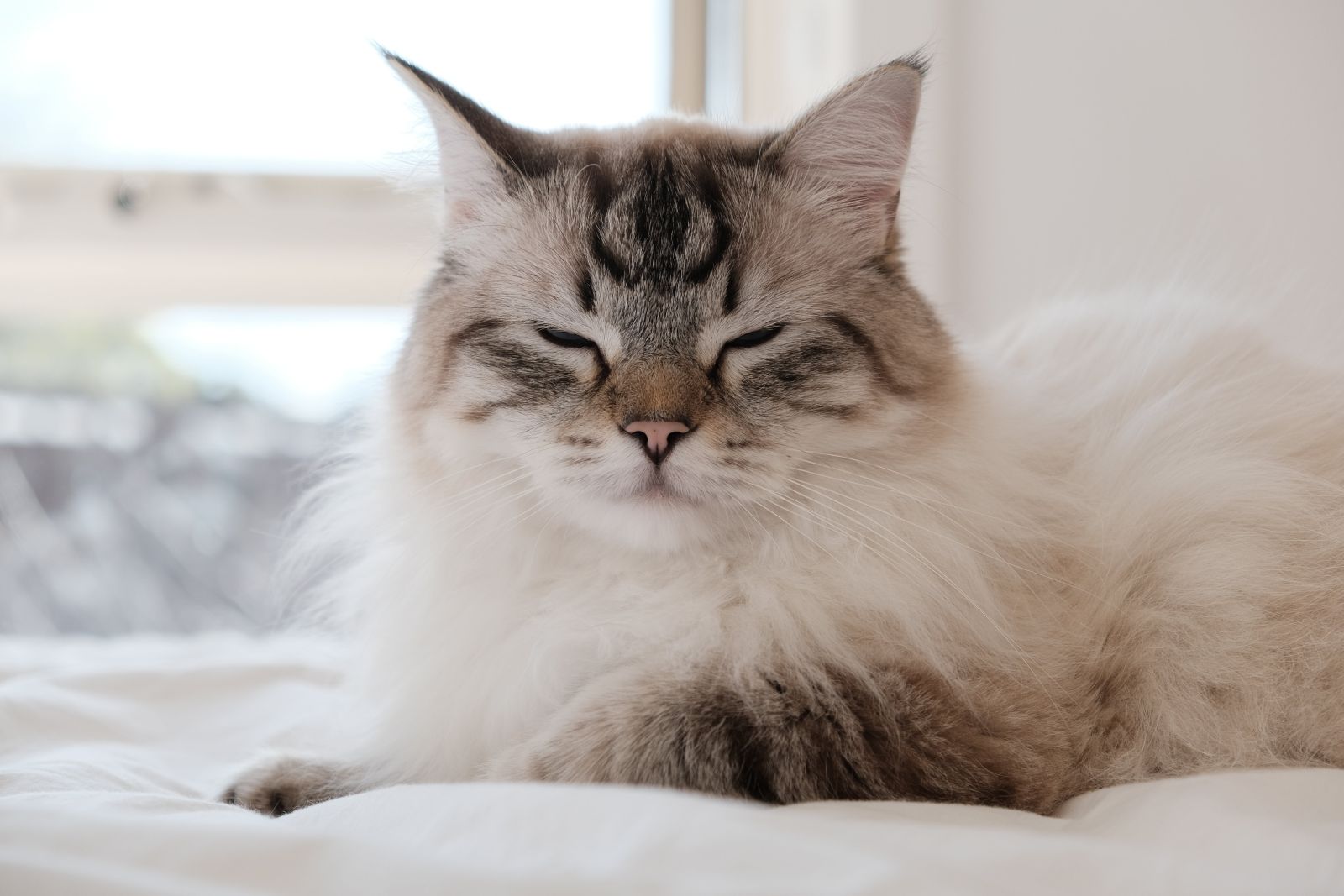
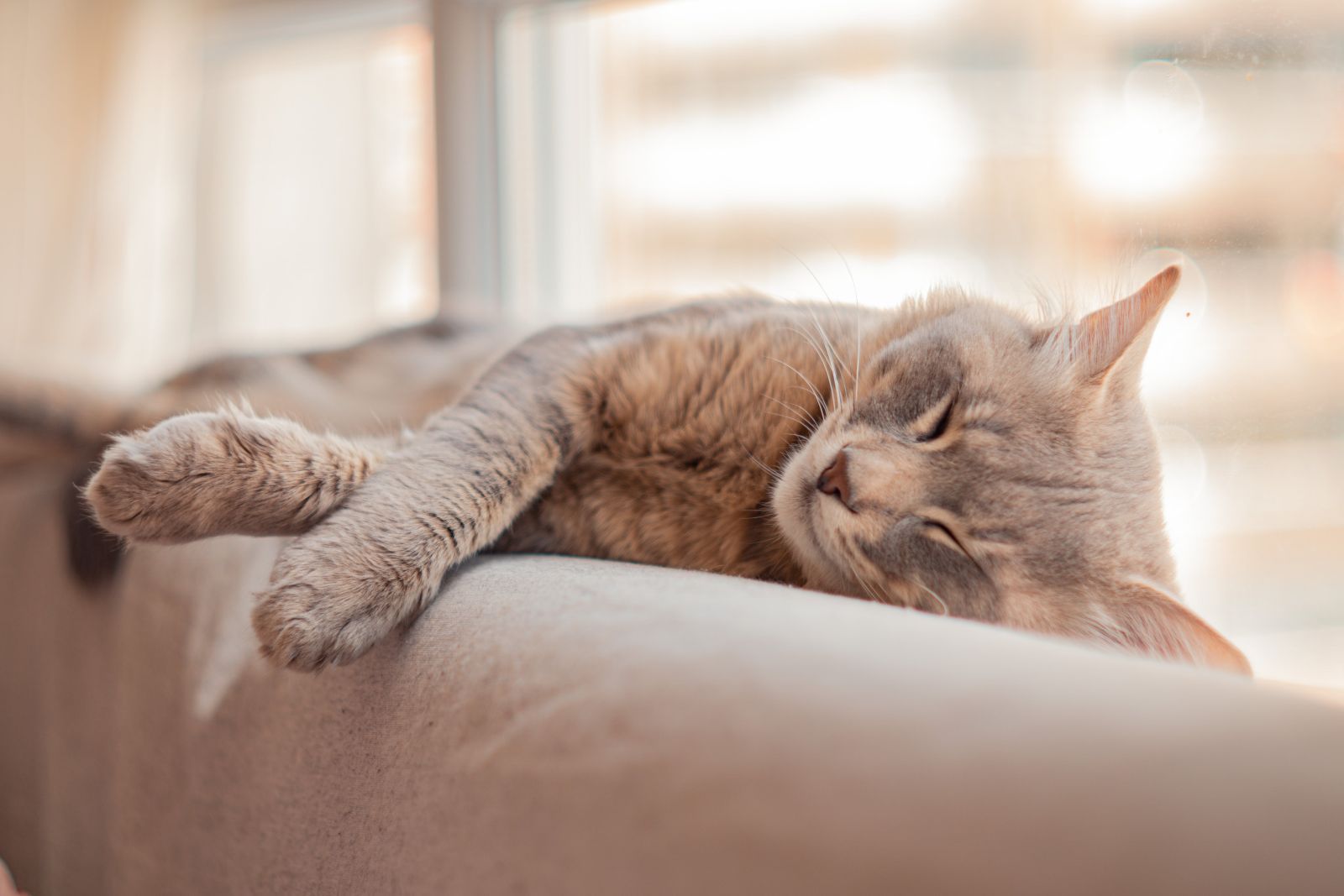
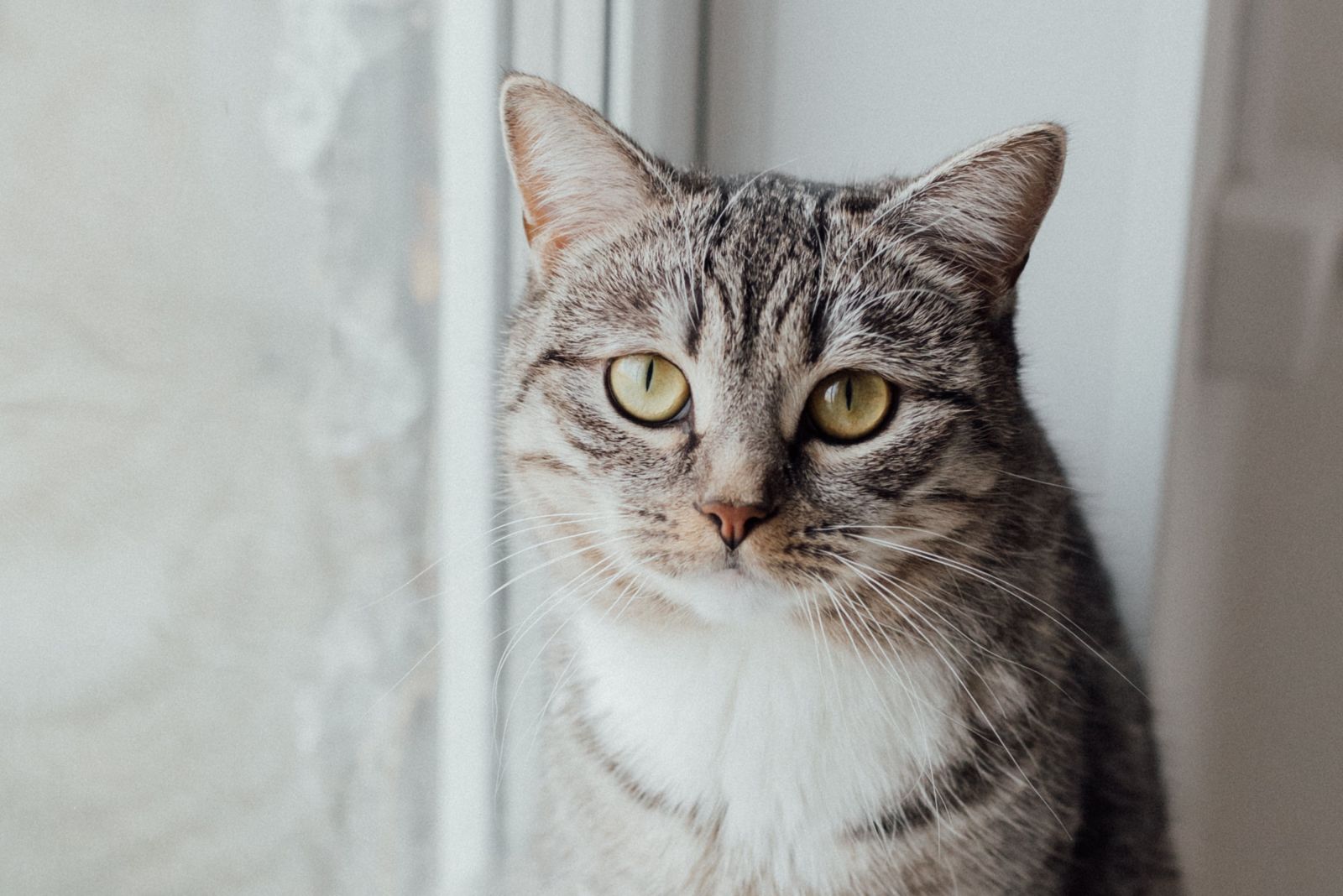
(1).png)
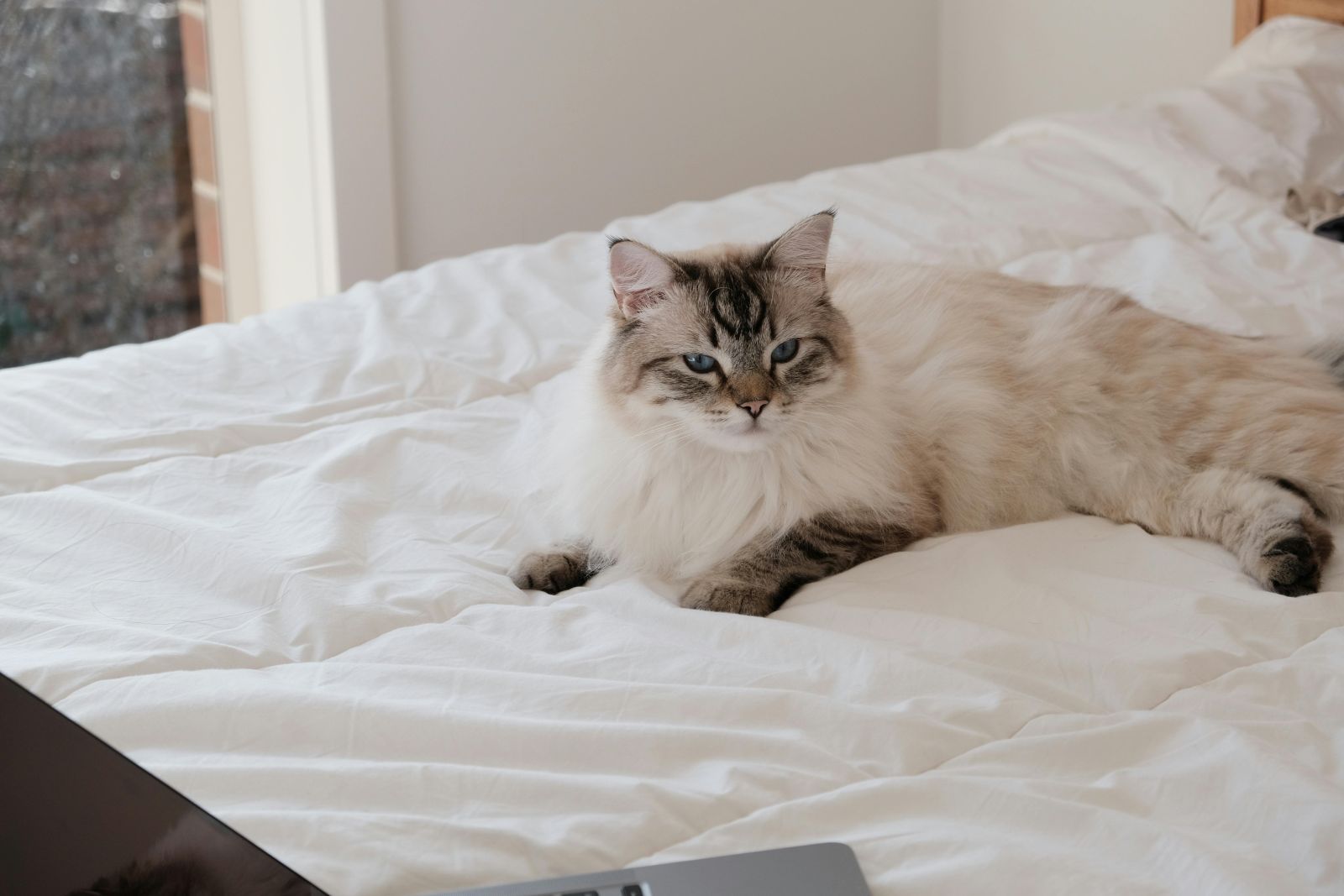

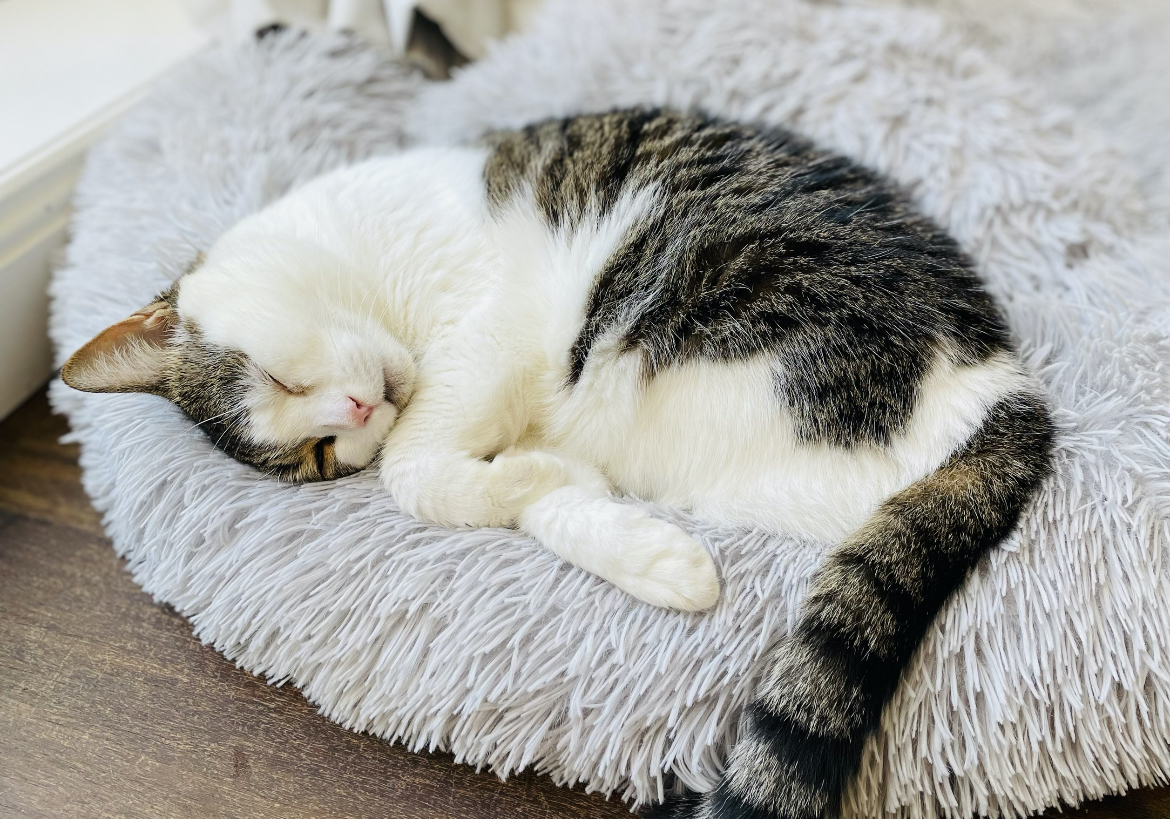


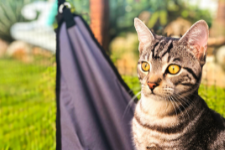






Leave a comment